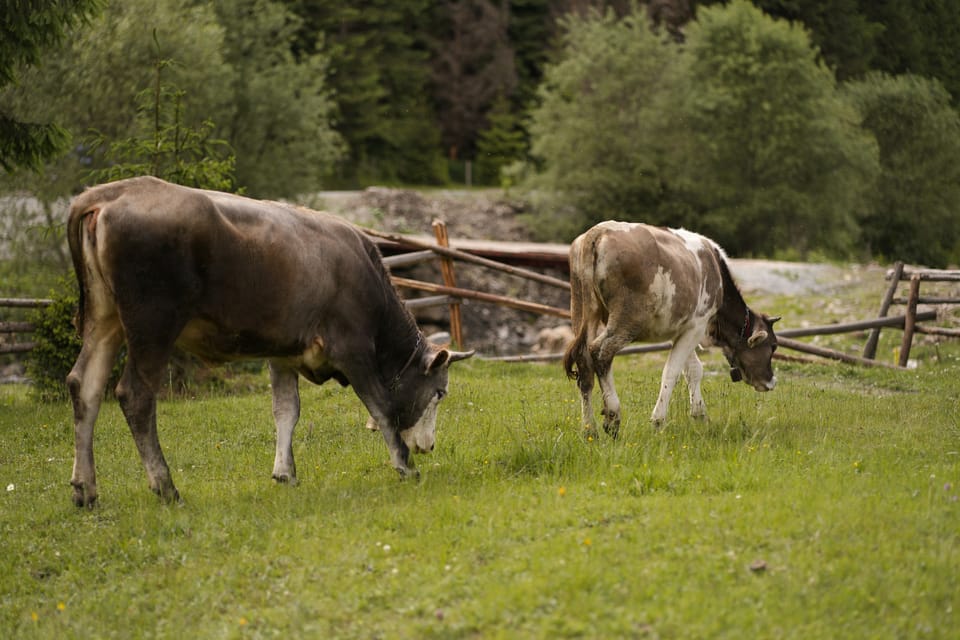Sustainability leaders welcome EU adoption of Nature Restoration Law

The European Union on Monday approved a flagship policy aimed at nature restoration after months of delay, the first green law to pass since the European Parliament elections earlier this month.
The Nature Restoration Law requires member states to introduce measures restoring nature on 20% of their land and sea by 2030 and all ecosystems in need of restoration by 2050. The policy aims to reverse the decline of Europe’s natural habitats, 81% of which are ranked as being in poor health.
“Today marks a pivotal victory for Europe’s people, nature and climate alike,” said Janneke de Vries, Director of EU Partnerships at the World Resources Institute, in a statement. “We now have a law in place to protect the environment, to underpin healthy ecosystems for our food security, to safeguard clean water, preserve our health and to protect us against extreme weather.”
The vote was held after Austria’s environment minister, Leonore Gewessler of the Greens, defied her conservative coalition partners by backing the policy. After the law was adopted by the EU Parliament in February, the policy was expected to be approved in March, but the vote was called off after Hungary unexpectedly withdrew its support.
Countries including the Netherlands were concerned the policy would slow the expansion of wind farms and other economic activities, while Poland on Monday said the measure lacked an adequate funding plan. European in-fighting, along with months of farmers’ protests against high costs and red tape, led to a weakening of the law’s measures – in particular, the inclusion of an “emergency brake” allowing initiatives to be suspended if they “severely reduce the land needed for sufficient food production for EU consumption.”
Still, news of the European Council’s adoption was welcomed in sustainability circles.
“The final text is watered down, including an 'emergency brake' if perceived nature actions threaten food security – while in reality, it is rather biodiversity collapse & ecosystem degradation that threaten our food security,” Tim Christophersen, VP of Climate Action at Salesforce, said in a post on LinkedIn. “However, it still is a groundbreaking and globally leading restoration law. The first of its kind at this scale!”
Business leaders show support
Dozens of businesses and organisations, including Coca-Cola Europe and H&M Group, penned an open letter last month to Belgian leaders calling for the EU to adopt the law.
“Large-scale restoration of habitats, their species and the multiple ecosystem services from which we all benefit, will ultimately help tackle the climate crisis, ensure our long-term food and water security, as well as protect and create new employment opportunities. It will help us sustain jobs, the foundations of economic activities and the sectors that rely on healthy ecosystems,” they pointed out.
This follows another letter last year, in which more than 100 companies – including leaders in agribusiness such as Nestle and Unilever – urged members of the European Parliament to pass the Nature Restoration Law.
Some 6,000 scientists also signed an open letter supporting the deal and rejecting criticisms that the law would threaten food security and kill jobs. “The biggest risks to food security stem from climate change and the loss of biodiversity and ecosystem services, such as pollination and pest control,” the letter stated.
Farmers remain skeptical of law’s funding and implementation
The agriculture sector has been skeptical of the law, saying it lacks a plan for consistent funding and implementation. Leaders in fishing and farming are also concerned about the law’s imbalanced impact on their business operations.
“It was always likely that the law pass once the EU elections were over. Farmers will see the post-trilogue stalling of this law by Member States as a piece of pre-election political theatre,” Irish Farmers Association President Francie Gorman said in a statement.
“The approach by the Commission to bring in a law in this area rather than a properly- funded, EU-wide, voluntary scheme is totally wrong. The reality is that there is a huge amount of uncertainty about how this law is going to be interpreted at Member State level.”
Speaking to CSO Futures before the law was approved, José Lindo Solis, a lobbyist and policymaker specialised in climate and biodiversity agreements, warned that convincing the rural population and farmers about the positive aspects of the law was “important.” He suggested that this could be done by paying farmers for “ecosystem services,” a type of arrangement through which those who benefit from the “services” provided by nature (be they companies or governments).
“This is what farmers are desperately asking for: more public and, why not, private subsidies. Those who pollute pay, but those who conserve get paid,” Lindo Solis said.







Member discussion